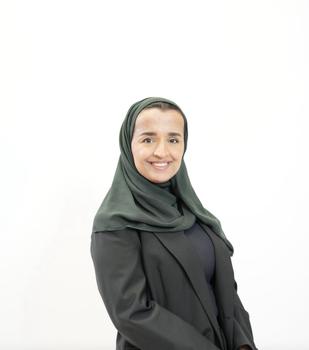For many students, the transition from undergraduate to graduate studies can feel like a long road. But for those in George Mason University’s Bachelor’s–Accelerated Master’s (BAM) program, it’s a strategic leap forward. Maha Almoshaddak, a current student in the BAM Finance track, shares her transformative experience and why this fast-paced, high-reward program was the perfect fit for her career goals.

Maha was drawn to the BAM program by the opportunity to advance her education more efficiently while focusing on a field she’s passionate about. The ability to begin graduate-level coursework early offered significant savings in both time and cost. But what truly stood out to her was the program’s affiliation with the CFA Institute. With plans to pursue the Chartered Financial Analyst (CFA) designation after graduation, Maha felt confident that the Master of Science in Finance (MSF) coursework would closely align with the CFA curriculum and provide a solid foundation in the core areas of finance.
The BAM program helped Maha grow academically by challenging her to engage with more advanced material while still completing her undergraduate degree. Taking graduate courses earlier pushed her to dive deeper into financial topics and improved her understanding across both levels of study. In fact, the skills she developed in her graduate classes enhanced the quality of work she produced in her undergraduate courses as well. She also appreciated how accessible and streamlined the BAM application process was compared to traditional graduate admissions, noting that it allowed her to begin her MSF coursework during her final undergraduate semester—completing two of the eleven required courses early. Students like Maha can take up to five graduate courses as undergraduates, providing a major head start in their master’s journey.
Professionally, Maha found the early exposure to graduate-level material invaluable in preparing for the demands of the finance industry. Through projects, case studies, and hands-on assignments, she developed practical skills that employers are actively seeking. One course that made a lasting impact on her was Statistical and Quantitative Methods for Finance (MSF 632), where she was introduced to Python. This experience gave her a strong foundation in financial data analysis and allowed her to automate complex tasks that would otherwise take much longer using Excel. Even with only limited prior experience in coding, the course structure helped her build confidence and proficiency in using Python for real-world financial applications.
In addition to the classroom experience, Maha credits much of her success to the university’s support systems. Career services played a key role in guiding her internship and job search, helping her refine her resume and identify roles that support international students. She also found the faculty to be exceptionally supportive, always available during office hours to explain difficult concepts and offer academic and professional guidance. Networking events hosted by the school gave her opportunities to connect with industry professionals, faculty, and fellow students, which helped her feel more connected and confident in her future path.
As she continues in the MSF program, Maha feels well-prepared for a career in finance, both in the U.S. and internationally. The technical skills she’s developed—such as financial modeling, data analysis, and coding in Python—are complemented by soft skills like communication and problem-solving, honed through group projects and presentations. This comprehensive preparation, she believes, will give her an edge in any competitive job market.
To other international students considering the BAM program, Maha’s advice is simple: “Go for it—and be ready to challenge yourself.” She emphasizes the value of applying early, which allows students to take advantage of the program’s structure and complete nearly half of their master’s coursework during their undergraduate studies. This not only saves time and money, but also helps build a strong academic and professional foundation early on.
Reflecting on her journey, Maha says, “Starting as an undergraduate student, going through the BAM program, and now being a full-time master’s student has been a rewarding journey. The program helped me grow academically and exposed me to new topics and skills.” With two semesters left, she looks forward to continuing her learning and building more connections as she prepares to launch her career in finance.
If you're a driven student passionate about finance and ready to take your education to the next level, Maha’s story shows that the BAM Finance program at George Mason University could be your pathway to success.
